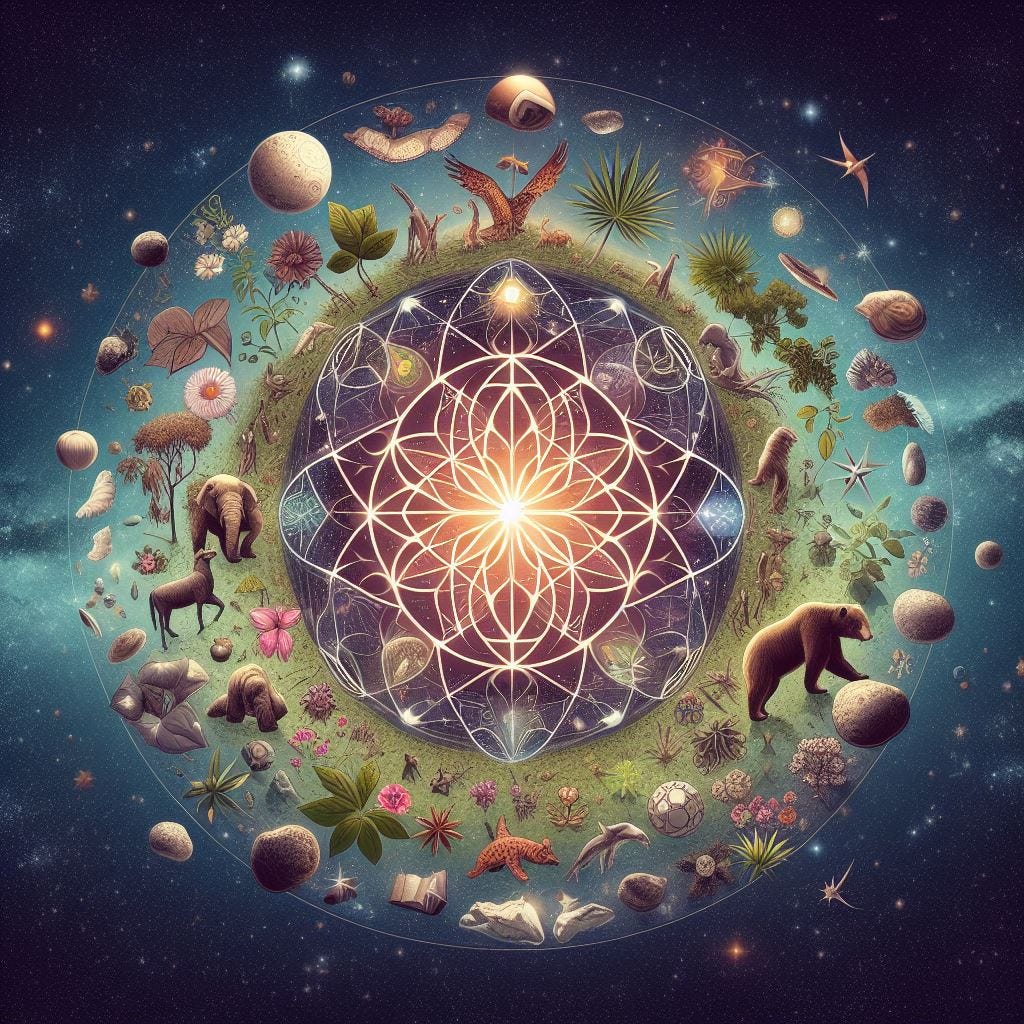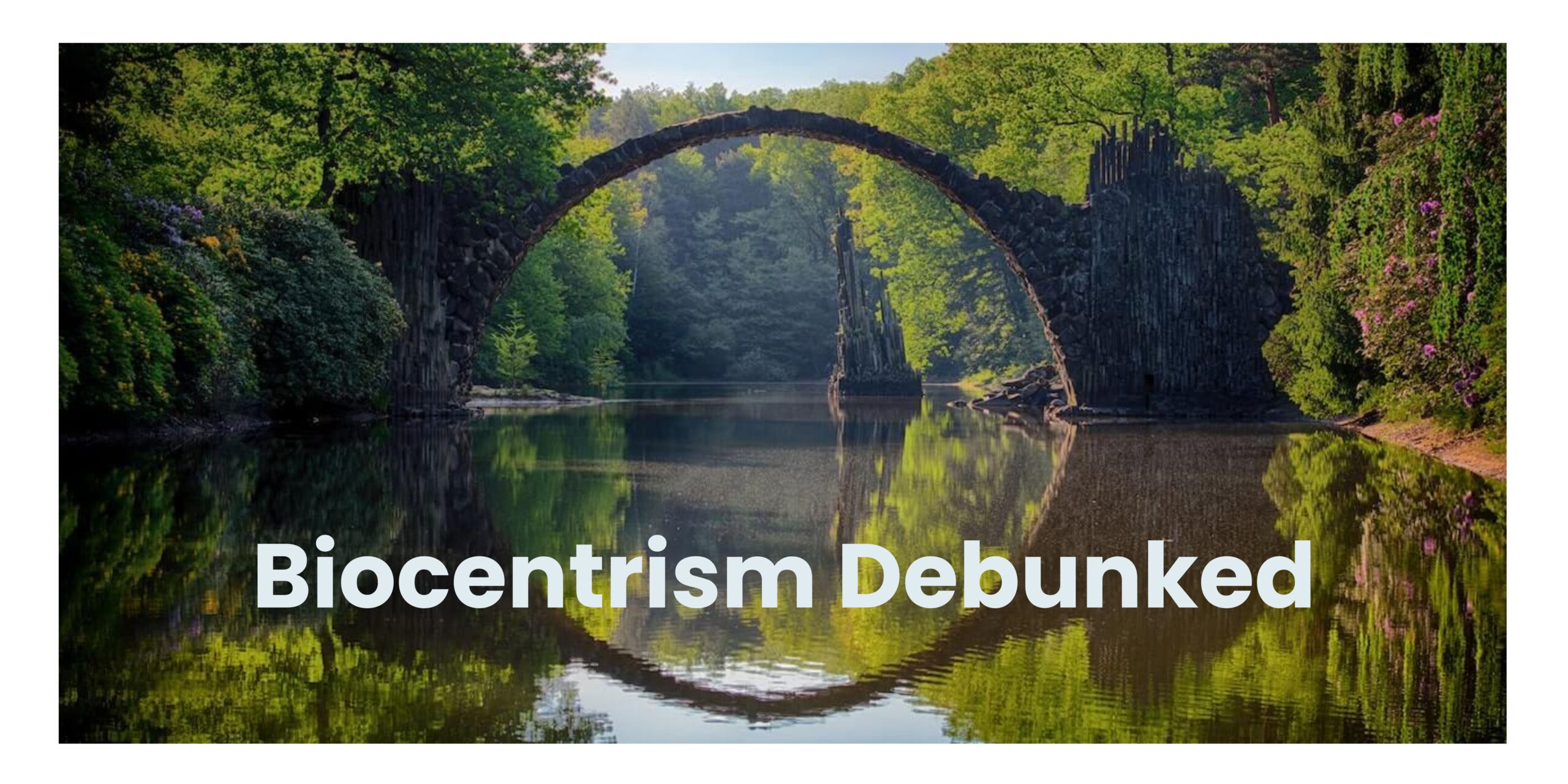Biocentrism Debunked: The Truth Revealed

Biocentrism is debunked, refuted by science, challenging the theory that consciousness is the fundamental reality. Despite its claims, there is no objective evidence supporting biocentrism’s validity.
Biocentrism, a philosophical stance positing consciousness as the basis of the universe, has faced criticism from the scientific community. This theory proposes that life creates the universe, contrary to the prevailing scientific understanding. However, detractors argue that there is insufficient empirical evidence to support this claim.
This critical evaluation seeks to examine the validity of biocentrism’s assertions in light of scientific principles. The article will delve into the debate surrounding biocentrism, addressing key arguments against its tenets and shedding light on its disputed standing in the scientific community.

Credit: www.getfast.ca
Contents
Introduction To Biocentrism
Biocentrism Debunked challenges the theory that consciousness is the fundamental reality of the universe. Critics argue that the concept of biocentrism lacks scientific evidence and relies heavily on subjective interpretation rather than objective observation.
Definition And Explanation Of Biocentrism
Biocentrism is a theory that posits life as the central organizing principle of the universe.
It suggests that life creates the reality we perceive, rather than reality existing independently of life.
The Role Of Consciousness In Biocentrism
Consciousness is believed to play a crucial role in biocentrism.
Advocates of this theory argue that consciousness shapes the physical world around us.

Credit: www.goodreads.com
Critics Of Biocentrism
Argument Against Biocentrism
Objective Reasoning Against Biocentrism
While some proponents advocate for biocentrism, there are also notable critics of this theory. These critics raise valid points challenging the notion that life governs the universe. One of the main arguments against biocentrism is the debate regarding the scope of consciousness in animals. Critics argue that attributing cosmic significance to all living beings may oversimplify the complexity of consciousness.
Debunking Biocentrism
Challenging the theory of biocentrism asserts life doesn’t shape the universe fundamentally, diving into contentious perspectives.
The Role Of Physics Vs. Biology
When it comes to debunking the concept of biocentrism, it is crucial to understand the fundamental differences between physics and biology. While physics deals with the laws and principles that govern the physical world, biology focuses on the study of living organisms and their processes.
Physics primarily relies on empirical evidence and mathematical models to understand the natural phenomena occurring in the universe. It has provided us with remarkable insights into the fundamental forces, the behavior of matter and energy, and the nature of space and time.
On the other hand, biology explores the complexity of life, including the intricacies of cells, genetics, evolution, and ecosystems. It aims to explain the processes of growth, reproduction, adaptation, and ultimately the phenomenon of consciousness.
Explanatory Power Of Biocentrism
Biocentrism, as a theory, seeks to explain the universe based on the idea that life and consciousness are the driving forces behind its existence. Proponents of biocentrism argue that traditional scientific theories relying solely on physics and chemistry fail to comprehensively explain our conscious experience and the interconnectedness of all living beings.
According to biocentrism, our consciousness is not merely an emergent property of the brain but rather a fundamental aspect of the universe itself. This theory proposes that reality is structured in a way that gives primacy to life and conscious observation, placing them at the core of our understanding of the cosmos.
By incorporating consciousness into the fabric of reality, biocentrism offers an intriguing perspective that attempts to bridge the gap between the physical and the metaphysical, providing a holistic view of the universe.
The Controversy Surrounding Biocentrism
The concept of biocentrism has sparked intense debate within the scientific community. Skeptics argue that biocentrism lacks empirical evidence and falls short in providing testable predictions that can be rigorously evaluated through experiments and observations. Without such evidence, many scientists remain skeptical of biocentrism’s validity as a scientific theory.
Furthermore, critics point to the fact that biocentrism appears to rely heavily on philosophical and metaphysical assumptions, which are difficult to quantify and measure. They argue that the explanatory power of biocentrism is limited and that it does not offer a consistent and comprehensive framework for understanding the universe.
Nevertheless, proponents of biocentrism maintain that it offers an alternative perspective that challenges the current scientific paradigm and encourages further exploration into the relationship between consciousness and the physical world.

Credit: www.getfast.ca
Alternatives To Biocentrism
Explore viable alternatives to Biocentrism, challenging its core beliefs and raising critical questions about consciousness and reality. From scientific perspectives to alternative theories, delve into the controversy surrounding Biocentrism and its impact on our understanding of the universe.
Anthropocentrism And Its Criticism
Anthropocentrism places human beings at the center of the universe, considering human needs and desires as the primary focus. Critics argue that this view leads to environmental degradation and exploitation of non-human life forms. Instead, it is essential to consider the interconnectedness of all living entities for a sustainable and harmonious existence.
Ecocentrism And Deep Ecology
Ecocentrism emphasizes the intrinsic value of ecosystems and nature as a whole, recognizing the interdependence of all life forms. Deep Ecology takes this concept further, advocating for a holistic approach that places equal value on non-human life and ecosystems. This perspective promotes the idea of a balanced and mutually beneficial coexistence between humans and the natural environment.
Other Theories Explaining The Role Of Life In The Universe
Various other theories offer alternative explanations for the role of life in the universe. These include theories that posit the interconnectedness of all living beings, the ethical treatment of non-human life forms, and the recognition of the profound impact of diverse ecosystems on the well-being of all life on Earth.
The Significance Of The Biocentrism Debate
Biocentrism, an intriguing theory proposing that life is the central force in the universe, has sparked heated debates among scholars, scientists, and philosophers. The significance of the biocentrism debate lies in its profound implications across various domains, shaping our understanding of ethics, morality, and scientific paradigms. This theory has also sparked passionate discussions and opened doors for future research and exploration.
Implications For Ethics And Morality
Biocentrism challenges traditional anthropocentric views, advocating for a more inclusive ethical framework that recognizes the inherent value of all living organisms. This perspective elevates the moral status of non-human life forms, prompting contemplation on responsible stewardship of the environment. The debate on biocentrism confronts us with ethical questions regarding our treatment of animals, the environment, and the interconnectedness of all life on Earth.
Implications For Scientific Understanding
The biocentrism debate has profound implications for scientific understanding, offering an unconventional lens through which to view the universe. It challenges the mechanistic view of nature, emphasizing the interconnectedness and interdependence of living systems. This prompts scientists to explore new avenues in the study of consciousness, the nature of reality, and the fundamental principles governing the universe.
Future Research And Exploration
The controversy surrounding biocentrism invigorates future research and exploration, encouraging scholars and scientists to delve deeper into the nature of consciousness and its role in shaping reality. It opens doors for interdisciplinary collaborations, inviting exploration of uncharted territories in physics, biology, and philosophy. The ongoing debate cultivates a fertile ground for intellectual curiosity and innovation.
Frequently Asked Questions On Biocentrism Debunked
What Is The Biocentrism Theory Of The Universe?
Biocentrism is a theory that suggests the universe is created by life, not the other way around. It is an extension of the participatory anthropic principle and was coined by physicist John Wheeler. Some critics argue that animals cannot live objectively and that there is no objective reasoning for biocentrism.
What Is The Answer To Biocentrism?
Biocentrism claims that life is the root of the universe, contradicting traditional views. Scientists challenge this theory due to its lack of empirical evidence.
How Does Biocentrism Explain Death?
Biocentrism explains death as a transition into another universe, based on the theory that consciousness shapes reality. This suggests that death is a passage to another dimension.
What Is Biocentrism Opinion?
Biocentrism is the opinion that all species have inherent value and humans are not superior to other species. It emphasizes interdependence and the community of Earth’s species. Some critics argue that animals cannot live objectively and there is no objective reasoning for biocentrism.
Conclusion
Biocentrism presents a fascinating perspective on the universe, where consciousness and perception play a crucial role. However, it is important to critically evaluate this theory. Critics argue that animals lack the capability to live objectively, and there is no objective reasoning for biocentrism.
While biocentrism sparks intriguing discussions, it is essential to consider the wider scientific consensus and empirical evidence when exploring the nature of existence. Ultimately, understanding the complex relationship between life, consciousness, and the universe requires further exploration and examination.




